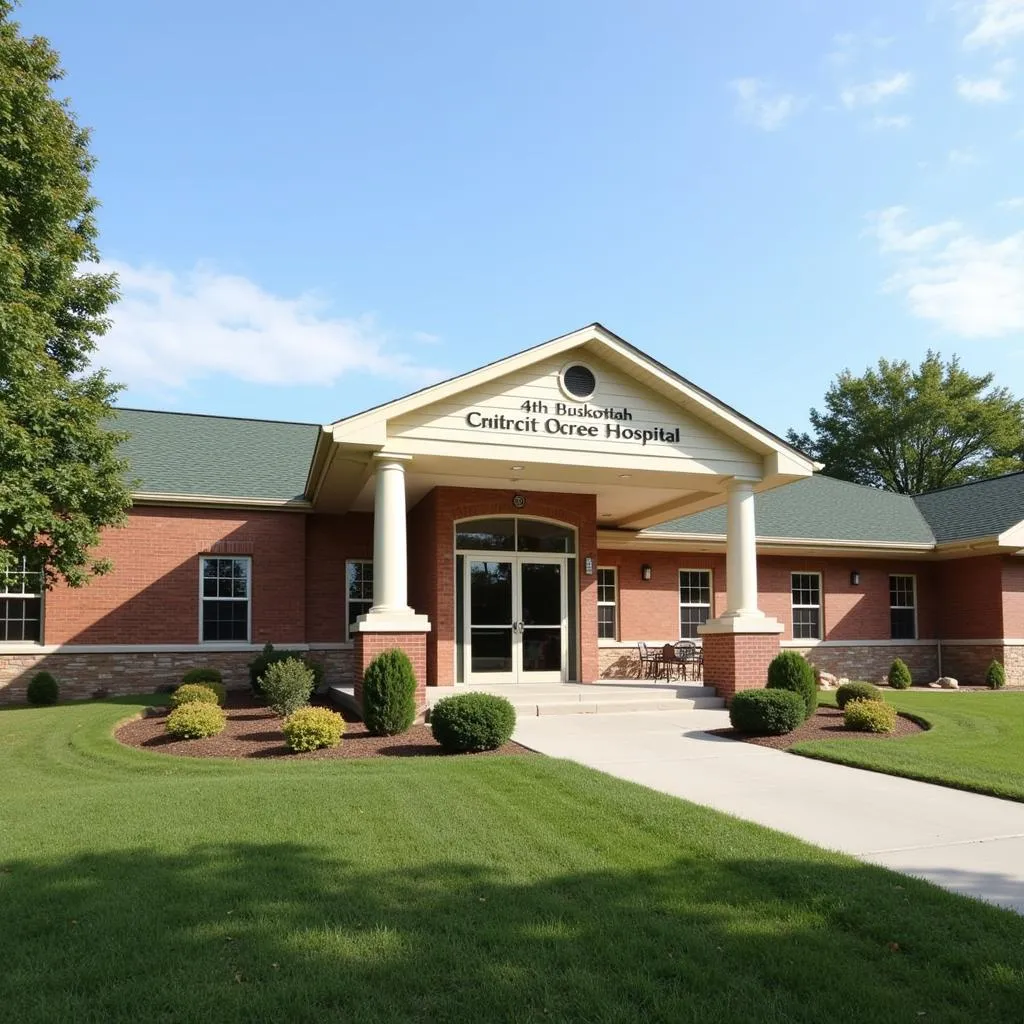Critical access hospitals in Washington State play a vital role in ensuring residents, especially those in rural areas, have access to essential healthcare services. These facilities are more than just hospitals; they are cornerstones of their communities, providing a safety net of medical expertise and compassionate care. This comprehensive guide will delve into the crucial role of critical access hospitals in Washington State, exploring their services, benefits, and how they contribute to the well-being of the communities they serve.
Understanding Critical Access Hospitals: A Lifeline for Rural Communities
Critical access hospitals are typically smaller facilities located in rural areas or regions with limited access to healthcare. The designation of “critical access” comes with specific requirements and benefits designed to ensure their sustainability and ability to serve their communities effectively. These hospitals must meet criteria set forth by the Centers for Medicare and Medicaid Services (CMS), including:
- Maintaining a maximum of 25 acute care inpatient beds
- Providing 24/7 emergency care services
- Meeting a distance requirement from other hospitals
 Rural critical access hospital exterior
Rural critical access hospital exterior
The Essential Services Offered by Critical Access Hospitals in Washington State
Critical access hospitals offer a range of essential medical services tailored to meet the needs of their communities. While they may not have the extensive specialized departments found in larger urban hospitals, they provide a vital safety net of care, including:
- Emergency Care: Around-the-clock emergency services equipped to handle a variety of urgent medical situations.
- Inpatient Care: Short-term care for patients requiring hospitalization for conditions like pneumonia, heart failure, or surgery recovery.
- Labor and Delivery Services: Maternity care for expecting mothers, including labor, delivery, and postpartum support.
- Diagnostic Imaging: Services like X-rays, ultrasounds, and CT scans to aid in diagnosing a wide array of conditions.
- Laboratory Services: On-site labs for analyzing blood work, urine tests, and other diagnostic samples.
- Pharmacy Services: Dispensing medications and offering pharmaceutical advice to patients.
- Rehabilitation Services: Physical, occupational, and speech therapy to help patients regain function and mobility after illness or injury.
 Well-equipped critical access hospital emergency room
Well-equipped critical access hospital emergency room
The Benefits of Critical Access Hospitals: A Closer Look
The presence of critical access hospitals brings numerous benefits to the communities they serve, extending beyond immediate medical care. Let’s explore some of the key advantages:
- Enhanced Access to Care: They reduce the need for residents in remote areas to travel long distances for essential healthcare services.
- Economic Growth: They are often significant employers in their communities, providing stable jobs and contributing to economic stability.
- Improved Health Outcomes: By providing timely access to care, critical access hospitals help prevent complications and improve overall community health.
- Personalized Care: Smaller size allows for a more personalized approach, fostering stronger patient-provider relationships.
- Community Integration: They often serve as community hubs, hosting health fairs, educational programs, and support groups.
How Critical Access Hospitals in Washington State Ensure Quality Care
Despite their smaller size, critical access hospitals in Washington State maintain high standards of care. They achieve this through:
- Telehealth: Utilizing technology to connect with specialists in urban areas for consultations and specialized care.
- Partnerships: Collaborating with larger hospitals and healthcare systems to ensure seamless transitions of care when needed.
- Continuous Quality Improvement: Engaging in ongoing efforts to enhance safety, efficiency, and patient satisfaction.
 Telehealth consultation in a critical access hospital
Telehealth consultation in a critical access hospital
The Future of Critical Access Hospitals in Washington: Adapting to Meet Evolving Needs
As healthcare needs evolve, critical access hospitals in Washington State continue to adapt and innovate to meet the demands of their communities. This includes:
- Expanding Behavioral Health Services: Addressing the growing need for mental health and substance abuse treatment in rural areas.
- Embracing Technological Advancements: Integrating new technologies to improve diagnostics, treatment, and patient monitoring.
- Focusing on Population Health Management: Implementing proactive strategies to address community health needs and prevent chronic diseases.
Finding a Critical Access Hospital in Washington State
If you live in a rural area of Washington State or are seeking healthcare services in a more intimate setting, critical access hospitals offer a valuable option. To locate a critical access hospital near you:
- Visit the Washington State Department of Health website
- Contact your insurance provider
- Utilize online hospital finders
Conclusion: Critical Access Hospitals – Pillars of Rural Healthcare
Critical access hospitals stand as pillars of healthcare in Washington State, ensuring that even the most remote communities have access to high-quality, compassionate care. These facilities are more than just hospitals; they are lifelines for rural residents, providing not only medical services but also economic stability and a sense of security. Their commitment to their communities makes them an integral part of the healthcare landscape in Washington State.
 using WordPress and
using WordPress and